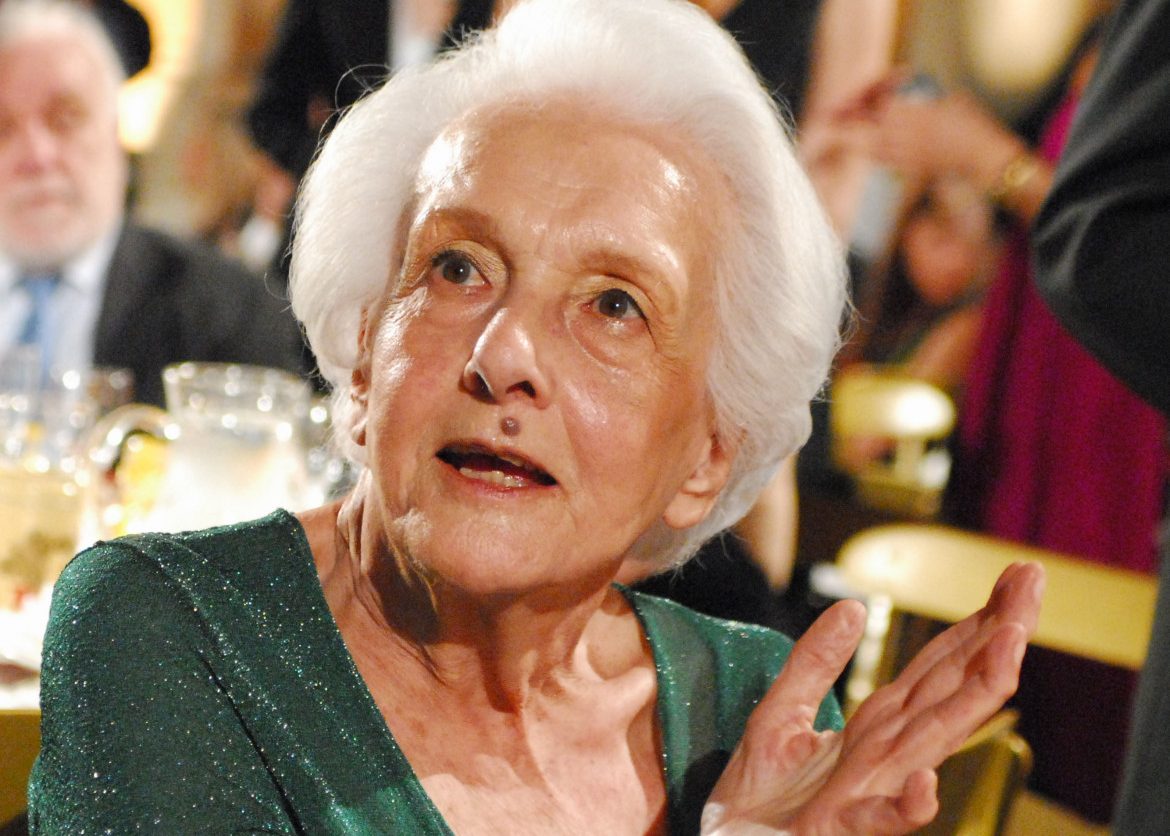Commentary
Dear Rossana, with your own words I bid you goodbye
I will say goodbye to you as I have always done, with your own words which you shared in what you called ‘booklets.’ I consider these the most lucid, deep and still-hidden testimonies of the unique person you were, as a woman and a communist.

Dear Rossana,
I will not write about you or take you as a subject. Only a woman of history, like yourself, could write striking obituaries for well-known and less-known people, which someone should collect and publish. I could only tell, using fragments—which have become part of me, of my thinking and feeling—of our long, wonderful friendship, of our loving bickering, of the infinite gratitude for the gift you gave me by welcoming me into your home, into your life, by sharing your thoughts and writings with me.
Today brings the pain of not being able to see you again, of not being able to give a face, a voice, to the many memories that I jealously keep of you and of our meetings. Thus, I will say goodbye to you as I have always done, with your own words which you shared in what you called “booklets,” which we made together, and which I, in fact, consider, as I have told you many times, the most lucid, deep and still-hidden testimony of the unique person you were, as a woman and a communist. I know how much you loved the sea, like me, and I am consoled on this day by the thought that, not many days ago, you managed to put your feet in the water once again.
You didn’t like me talking about you on Facebook, but today you will have to forgive the many who will, because you still live, and you will always live, through the precious legacy you have left, of a life spent for a more just world, but also for having faced aging, disease and death with such strength. You were always “Luciferina” (“little devil”), as you loved to say about yourself. Or “Luciferona” (“big devil”), as I would jokingly put it.
From R.R., Quel corpo che mi abita (“The body that inhabits me”), Bollati Boringhieri 2018
“I have always been running, I keep running to understand a lot of things (…) Those like me have lived like a piece in the mosaic of the world, whether it was the World War or Communism, it’s a good way to live whichever way. I was never bored.” “I want to know more, including the day of my death: I would live in a way that would perhaps be more painful, but perhaps richer as well. But let’s leave the Luciferian impulses and come back to being a woman.” “The day when the body will send me this message: ‘Look, I’m fed up, I’ve had enough,’ I hope it will leave me time to say: ‘Alright. And thanks, I had a lot of fun’.”
From Manuela Fraire and Rossana Rossanda, La perdita (“The Loss”), Bollati Boringhieri 2008.
“Afterwards, I don’t want anyone to look at me, I don’t want to be viewed, I don’t want funerals. Not out of pity for others, but because I am no longer there. (…) I don’t want to prevent someone from accompanying me, from accompanying my loved ones, but I don’t want to be seen, carried around in a box, in a coffin—I want to be burned and gone. This is not, I think, the fear of the end, but on the contrary, an ancestral horror of being semi-living, being in a box, powerless and without peace. It is the ancient fantastic conception that feared the dead as suffering, envious, to be propitiated. Perhaps it expresses a formless, primary attachment to existence. It is thinking of the dead as living people who are exiled and unhappy. A friend of mine who is a monk said to me one day: you know, I’m afraid of death. And for him, who was a serious believer, death was truly a fearsome passage. This is what I think means not having a will to live anymore; in any case, I can’t manage to celebrate birthdays.”
From R.R., Anche per me (“Also for Me”), Feltrinelli 1987
“It is hard, but a sign of maturity to recognize that the condition of man, hanging between life and death, this biological, ahistorical datum, the indestructible residue of the individuality of his suffering, is the dark limit that encounters, at the very limit of his path, a political emancipation: whose form and mission does not lie in restoring man to happiness, but only (only!) in freeing him from the intolerability of injustice.”
Originally published at https://ilmanifesto.it/cara-rossana-ti-dico-addio-con-le-tue-parole/ on 2020-09-22
